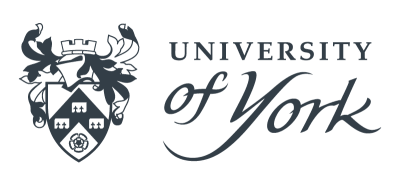
University of York

Introduction
About the University
Founded on principles of excellence, equality and opportunity for all, the University of York opened in 1963 with just 230 students. Since then we have become one of the world's leading universities, carving out a reputation as an academic powerhouse where a clear focus on excellence has secured national and international recognition alongside longer established institutions.
Academic excellence
A member of the elite Russell Group of universities, we are a dynamic, research-intensive university committed to the development of life-saving discoveries and new technologies to tackle some of the most pressing global challenges.
There are now over 30 academic departments and research centres and the student body has expanded to over 18,000.
The University Strategy
In 2014, in consultation with all staff and students, Vice-Chancellor Koen Lamberts led the development of a new University Strategy. This strategy will guide and inform our activities until 2020.
Key objectives
- To be a world leader in research
- To offer outstanding teaching and learning
- To offer all our students an outstanding and valuable experience
Supporting objectives
- To be sufficiently large to be excellent, resilient and financially sustainable
- To be organised in the most efficient and effective way
- To work effectively with other organisations and stakeholders
Awards and achievements
The University of York is one of the success stories in UK higher education. Since our foundation in 1963, we have powered our way to a consistently high ranking in the UK and are one of just six post-war universities to have appeared in the world top 100.

The campus and the city
Located within walking distance of York city centre, our safe and attractive Heslington campus is home to our nine colleges and most of our departments. We also have several departments located in the city centre at the historic King's Manor.
In recent years, our £500m campus expansion has seen the opening of seven new buildings, increasing our capacity for student numbers and providing more world-class facilities for the 21st century. Sustainability plays a key role in this ambitious development.
How the University is run
When describing how the University is run, it is important to understand there is a difference between how it is governed and how it is managed.
Governance
All universities have a governing body that is responsible for overseeing their activities, determining their future direction and monitoring progress against strategic ambitions. The University's governing body is the Council.
Council is also responsible for ensuring we remain financially sustainable and that we meet our legal obligations. It takes the final decision on matters which have a significant impact on the University
Management
While Council takes on a monitoring and oversight role as the governing body, it delegates the operational running of the University to the Acting Vice-Chancellor and President.
The Acting Vice-Chancellor and President undertake his responsibilities with the support of his senior colleagues who meet twice a month as the University Executive Board.
English Language Requirements
Certify your English proficiency with the Duolingo English Test! The DET is a convenient, fast, and affordable online English test accepted by over 4,000 universities (like this one) around the world.
Programmes
- BA (Hons) in Archaeology
- BA (Hons) in Archaeology and Heritage
- BA (Hons) in Business and Management
- BA (Hons) in Business of the Creative Industries
- BA (Hons) in Criminal Justice and Social Policy
- BA (Hons) in Criminology
- BA (Hons) in Curating and Art History
- BSc (Hons) in Accounting, Business Finance and Management
- BSc (Hons) in Actuarial Science
- BSc (Hons) in Bioarchaeology
- BSc (Hons) in Biochemistry
- BSc (Hons) in Biomedical Sciences
- BSc (Hons) in Biotechnology
- BSc (Hons) in Business and Management
- BSc (Hons) in Chemistry
- BSc (Hons) in Chemistry, Biological and Medicinal Chemistry
- BSc (Hons) in Chemistry, Green Principles and Sustainable Processes
- BSc (Hons) in Computer Science
- BSc (Hons) in Computer Science (with a year in industry)
- BSc (Hons) in Computer Science and Mathematics
- BSc (Hons) in Computer Science and Mathematics (with a year in industry)
- BSc (Hons) in Computer Science with Artificial Intelligence
- BSc (Hons) in Computer Science with Cyber Security
- BSc (Hons) in Finance, Operations Research, Management and Statistics
- BSc (Hons) in Marketing